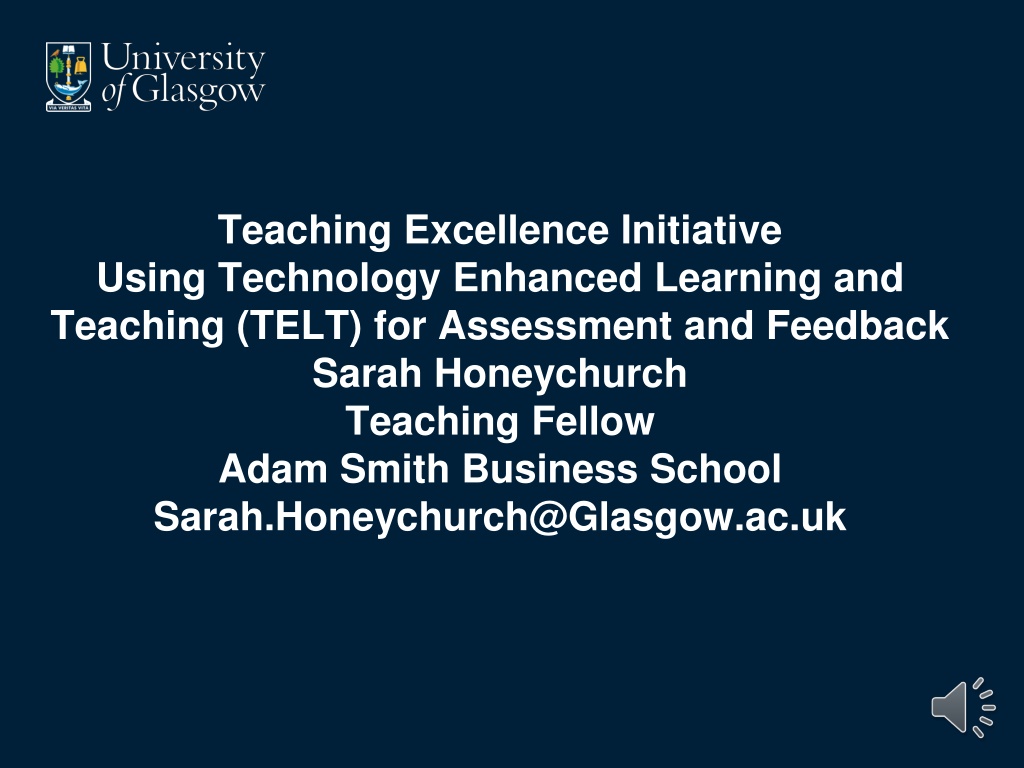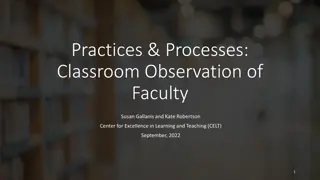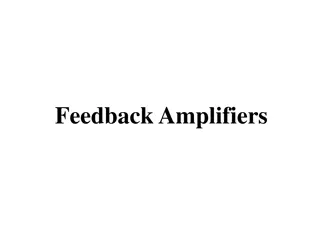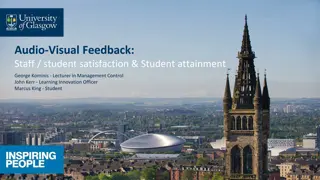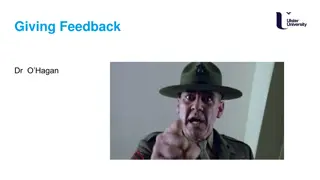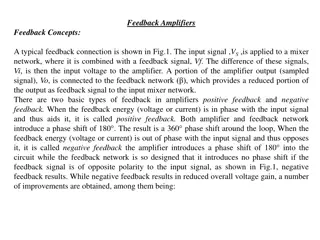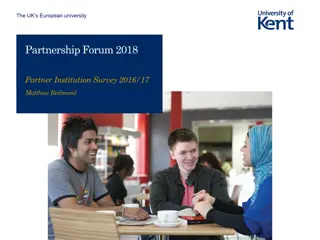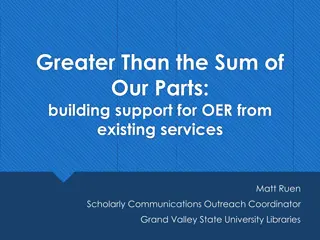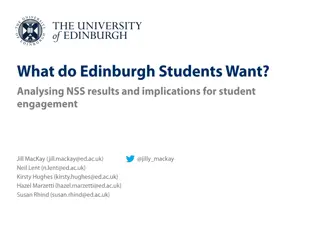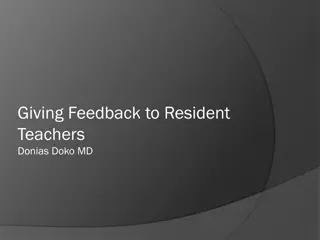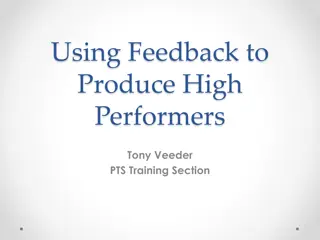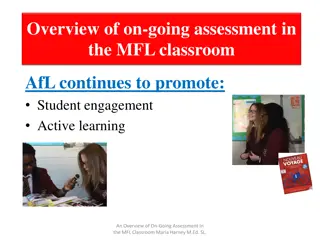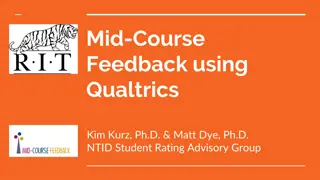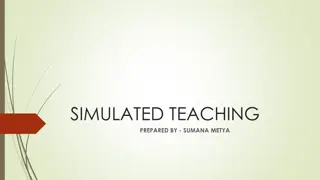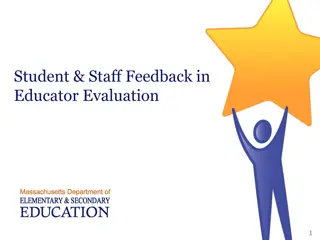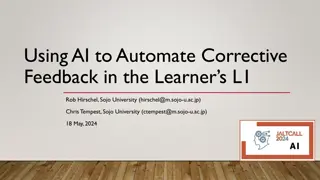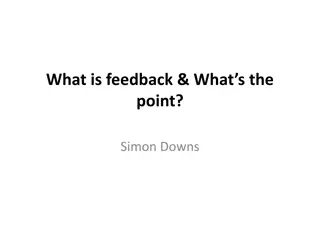Using Technology for Assessment and Feedback in Teaching Excellence Initiative
Self-regulated learners in higher education benefit from active involvement in assessment and feedback processes, leading to deeper learning. Good assessment and feedback practices promote self-regulation by engaging students in setting goals, making evaluative decisions, generating feedback, and responding to it. Utilizing tools like the Yet Another Class Response System (YACRS) can enhance classroom interaction and promote peer instruction. Technology-enhanced learning strategies like TELT can empower students to monitor, evaluate, and regulate their own learning, fostering sustainable learning beyond graduation.
Download Presentation

Please find below an Image/Link to download the presentation.
The content on the website is provided AS IS for your information and personal use only. It may not be sold, licensed, or shared on other websites without obtaining consent from the author. Download presentation by click this link. If you encounter any issues during the download, it is possible that the publisher has removed the file from their server.
E N D
Presentation Transcript
Teaching Excellence Initiative Using Technology Enhanced Learning and Teaching (TELT) for Assessment and Feedback Sarah Honeychurch Teaching Fellow Adam Smith Business School Sarah.Honeychurch@Glasgow.ac.uk
Self-regulated learners Research in higher education shows that learning is deeper, more sustainable and satisfying when students become responsible partners in their learning. The most powerful way to achieve this is to involve students actively in assessment and feedback processes, that is, by giving them regular opportunities to make judgements about their own work and the work of others and to provide rationalisations for these judgements. In this way, students will develop their own ability to monitor, evaluate and regulate their own learning, The ability to self-regulate your own learning is necessary for the development of all graduate attributes and for learning that is sustainable beyond graduation. (Nicol 2018)
Principles of Assessment and Feedback Good assessment and feedback practice that promotes self-regulation requires that students gain practice in: Formulating goals for learning and identifying standards Making evaluative decisions about their own and others' work Generating explicit feedback for self and others Responding to and/or acting on feedback Discussing work and its evaluation with others (e.g. with peers and teachers)
Yet Another Class Response System (YACRS) YACRS can be used to enhanced interaction in the classroom between the teacher and students, by encouraging students to actively reflect on potential solutions to a particular question. The teacher can get feedback to find out if the students have been understanding the material in the classroom, Students also get immediate feedback and clarification on their answers. YACRS can also promote peer interaction in the classroom is used in the context of peer instruction. This is a technique developed and popularised by Eric Mazur. https://www.gla.ac.uk/myglasgow/leads/staff/telt/telttech/#/classresponse(y acrs) https://www.gla.ac.uk/colleges/arts/informationforstaff/e- learning/tools/classresponseyacrs/classresponseguides/
Teaching Excellence Initiative Using Technology Enhanced Learning and Teaching (TELT) for Assessment and Feedback Sarah Honeychurch Teaching Fellow Adam Smith Business School Sarah.Honeychurch@Glasgow.ac.uk
